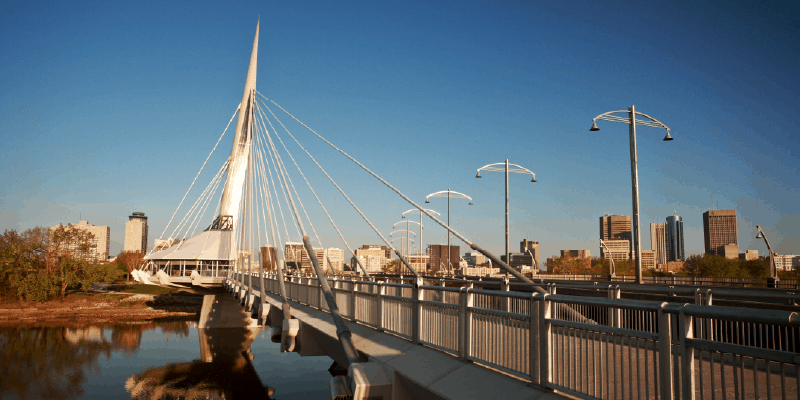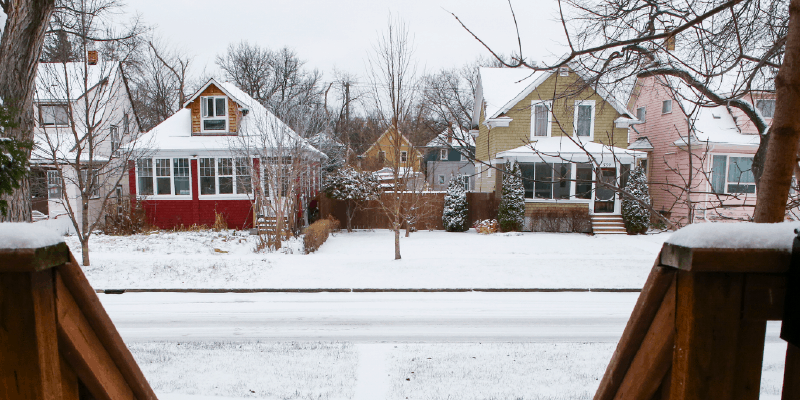
What is the Cost of Living in Winnipeg? Stats Included
Living costs money – it’s inevitable. If you’re starting to build your life and take on new expenses, you’re probably wondering what it’ll actually cost and how much you should budget to pay all your bills. In terms of affordability, Winnipeg is actually a pretty great place to be.
We’re going to break down the cost of living in Winnipeg, with everything from housing, groceries, and education to healthcare, childcare, and transportation. With the latest data, you’ll be able to budget for your expenses and plan for future purchases whether that’s a new car, house, or going back to school!

Housing
When it comes to accommodations, the most popular options are usually renting or buying. And within those categories, you have options too! You could rent or buy rooms, apartments, condos, houses, townhouses, duplexes… the list goes on.
Let’s take a look at the average cost for renting and buying in Winnipeg.
Renting
According to the Winnipeg Rent Board, the average cost to rent a one-bedroom apartment is $1,065 and $1,404 for a two-bedroom. That being said, it’s possible to find rentals for as little as $550 a month but you may have to settle for older amenities and fixtures. The average price for renting a one-bedroom house is $843 and $1,347 for a two-bedroom. In some cases, you may be better off opting for a house rental as you’ll typically get more space for the price.
Buying
According to the Canadian Real Estate Association, the average listing price for a house in November 2020 was $286,500. Now is a great time to buy in Winnipeg as mortgage rates are low. However, with low rates comes high competition and many people have got into bidding wars, paying thousands of dollars above listing price to secure the home they want. Condos are another buying option, with the average listing price sitting at $241,785.
Groceries and other goods
In Manitoba, residents pay a five per cent goods and services tax (GST) and a seven per cent provincial sales tax (PST), both calculated against the gross product price. Compared to other Canadian provinces, these rates fall in the middle of the pack.
In 2017, Manitoban households spent an average of $8,380 on food. That’s just over $698 per month. While this number includes food from the grocery store, alcohol and restaurant meals, it’ll give you an idea of how much you should budget to cover your food costs. Of course, these numbers will change depending on the number of people in your household. Global News recommends Canadians allocate 10 to 15 per cent of their gross income to food costs.
Healthcare
Canadians have a universal healthcare system so most medical services like trips to the doctor and the hospital are free. While we do have to pay for other health services such as chiropractic, massage, and optometry, insurance makes these costs very reasonable for many Manitobans.
Childcare
Childcare costs are relatively low in Winnipeg compared to other provinces. In the Canadian Centre for Policy Alternatives 2017 report, the median monthly fee for infant care in Winnipeg was $651 and the median monthly fee for toddler care was $451. These costs are significantly lower than in other cities. Take Toronto for example – you’d be paying well over $1,000 per month, per child.
Education
According to Statistics Canada, Winnipeg undergraduate tuition fees in 2020/2021 average around $4,991. Graduate programs only go up from there and certificates can cost hundreds to thousands of dollars as well. Compared to other countries, our education costs are low, though if you’re planning on going to school, you’ll want to save as much as you can. The government also has resources in place to help students with the financial burden of schooling. You can check out Manitoba Student Aid and Manitoba Scholarships for other financing options.
Transportation
Winnipeg isn’t the most foot-friendly city, at least not once you branch out of downtown. Many residents opt for public transportation or private transportation.
Public Transportation
If you’re looking to take the bus, full transit fare now costs $3.05, however if you purchase multiple-day or week passes, you’ll get a bit of a price break.
Private Transportation
Driving your own private transportation is another ball game. Gas prices have been sitting around 90 cents per litre which is around $50 a fill for your standard vehicle. If you’re filling up twice a month, that’ll quickly add up to around $1,200 per year (on the lower end).
If you’re looking to buy a newer used car, prices average in the twenty thousands. In general, the newer the car, the higher the price. You’ll also have to account for insurance, which averages around $1,140 in Manitoba. You can use CAA’s Driving Costs Calculator and our Car Loan Calculator to estimate how much owning your specific vehicle will cost you.
Another expense to consider is parking. If you work downtown and drive to work, you’ll definitely be paying for some sort of parking.
- On-street parking costs $1.75-$2.75/hour if you’re parking from 8 a.m. and 5:30 p.m, Monday to Saturday. Otherwise, it’s complimentary.
- Parkade and lot rates range from $4 to $15 per hour during the day and $3 to $9 in the evening. If you rent a spot in a surface or indoor lot, you could be looking at $100 to $300 monthly.
If you’re looking for a quick getaway, Manitoba provincial parks are your answer. To help you decide your next adventure, we’re going to highlight 10 of the top provincial parks and what you can do when you visit.
If you applied for the Canadian Emergency Response Benefit (CERB) and don’t know what to do next, we’ll walk you through your options for CERB benefits for Manitobans. If you need to get a new vehicle quickly, we’ll also tell you about our loan programs, affordable vehicle options and how we can help, even if you have less than perfect credit.
How Birchwood Credit can get you an affordable vehicle
If you’re hoping to get into an affordable vehicle in 2021, our credit experts are here to set you up. Even with less than perfect credit, we can help you get approved.
Our goal is to create a payment plan that fits your budget and lifestyle. Since we offer in-house financing, we accept all credit types and can give our customers fair rates. If you’re unsure how much car you can afford based on salary, our team will walk you through the process. We’ll start with a Secure Credit Check to evaluate your credit situation and assess how much you can afford to spend on a vehicle. From there we’ll make a payment plan and get you on track to financial independence.
Fill out an online Car Loan Application to get started with one of our experts today.



